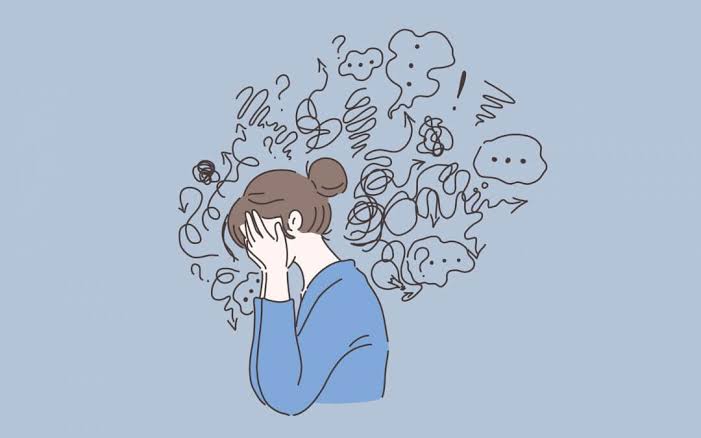Anxiety is a silent puppeteer. It tugs at invisible strings, shifting your mood, altering your thoughts, and even meddling with your body in ways you’d never suspect. It’s easy to think anxiety is just about nervousness, sweaty palms, or that racing heart before a big presentation. But it’s more than that. It’s a chameleon, blending into your daily life and showing up in unexpected places. Here are some surprising ways anxiety might be affecting you without you even realizing it.
- Your Body is Speaking, Are You Listening?
You know that random back pain you keep blaming on your office chair? Or those mysterious stomach issues that your doctor insists are “nothing serious”? Well, anxiety loves playing hide and seek in your body. From muscle tension to digestive problems, anxiety often disguises itself as physical discomfort. It can cause headaches, jaw pain from clenching, and even unexplained fatigue. Your body is talking , it’s just not using words.
- Sleep Thief in Disguise
Think insomnia is just about bad sleep habits? Think again. Anxiety has a clever way of sneaking into your dreams, turning restful nights into a battleground of tossing and turning. But it doesn’t stop there. Even if you’re getting enough sleep, anxiety can prevent you from feeling rested. It disrupts your sleep cycle, making it difficult for your brain to enter the deep sleep stages where true rest happens. You wake up feeling exhausted, even after eight hours in bed.

- Memory Lapses and Concentration Gaps
If you find yourself forgetting things more often or struggling to focus, it’s not just your phone’s fault. Anxiety overloads your brain, making it harder to concentrate or remember details. It’s like having too many tabs open on your browser – everything slows down. Anxiety keeps your brain on high alert, constantly scanning for threats, leaving little room for anything else.
- The Social Chameleon
Anxiety isn’t always about avoiding social situations. Sometimes, it’s about overcompensating. Do you find yourself overanalyzing every word after a conversation or feeling drained after social events? Anxiety can make you hyper-aware of social cues, causing you to constantly second-guess yourself. It’s not that you’re shy – it’s just that your brain is working overtime, turning casual interactions into exhausting mental marathons.
- Your Skin is in on It Too
Ever noticed a breakout right before a big event? That’s not just bad timing. Anxiety can trigger skin problems, from acne to eczema flare-ups. Stress hormones increase oil production, clogging pores and inviting breakouts. It’s your body’s way of handling the internal pressure cooker. Sometimes, anxiety also leads to habits like nail-biting or skin-picking, further aggravating skin issues.
- Decision-Making Paralysis
Anxiety loves to mess with your head, especially when it comes to making decisions. Even simple choices – like what to eat for dinner – can feel overwhelming. You might overthink every possible outcome, fearing you’ll make the “wrong” choice. This decision-making paralysis is anxiety’s subtle way of keeping you stuck. It’s not indecisiveness; it’s fear wearing a different hat.
- Digestive Drama
Anxiety and your gut are best friends – the kind that share secrets behind your back. Have you ever felt nauseous before a stressful event or had sudden stomach cramps during a tense moment? Anxiety disrupts your digestive system, leading to issues like bloating, indigestion, and even irritable bowel syndrome (IBS). It’s not just “nerves” – it’s your gut responding to your brain’s distress signals.
- The Emotional Roller Coaster
Anxiety isn’t just about fear or worry. It can sneak in as irritability, frustration, or even sadness. You might find yourself snapping at loved ones or feeling unusually emotional. Anxiety puts your nervous system on edge, making you more sensitive to stressors. It’s not about being “moody” – it’s about your body struggling to regulate its emotional thermostat.
- Procrastination Isn’t Just Laziness
Anxiety and procrastination are secret partners in crime. If you keep delaying tasks, it’s not necessarily because you’re lazy. It could be anxiety’s way of protecting you from perceived failure or criticism. By avoiding the task, you avoid the potential negative outcome. It’s a temporary relief, but the cycle continues, leaving you feeling overwhelmed and unproductive.
So, What Can You Do About It?
If these signs sound all too familiar, you’re not alone. Anxiety is a master of disguise, but it doesn’t have to control your life. The first step is recognizing its subtle ways. Once you see anxiety for what it is, you can start finding ways to manage it, through mindfulness, therapy, lifestyle changes, or even just being kinder to yourself.
Anxiety is clever, but so are you. The more you understand it, the better you can outsmart it.
Anxiety is not always loud. Sometimes, it’s a whisper in the background, showing up in unexpected ways. It affects your body, mind, and even your social life in ways that often go unnoticed. By recognizing its sneaky tactics, you can take the first step towards breaking free from its hold.
Understanding anxiety is the key to reclaiming control over your life. It’s not just about managing stress, it’s about listening to your body, paying attention to your thoughts, and taking action before anxiety becomes a silent ruler. You’re not alone in this battle, and it’s okay to seek help. Remember, the strongest warriors are the ones who learn to understand their fears.




 Premier League
Premier League